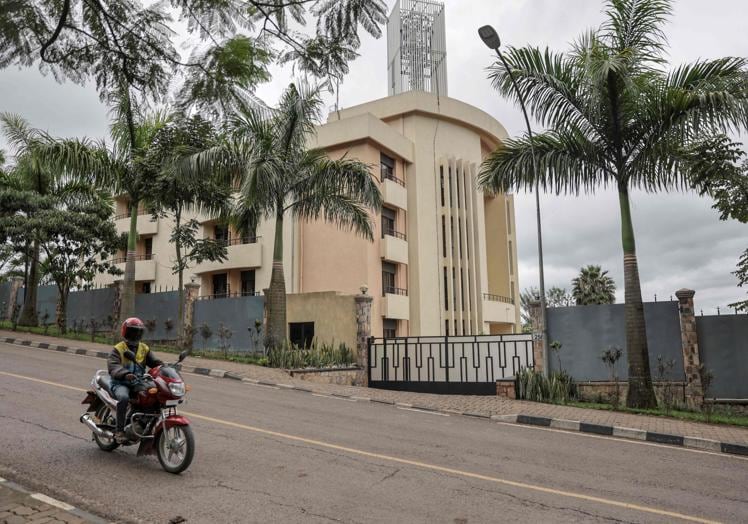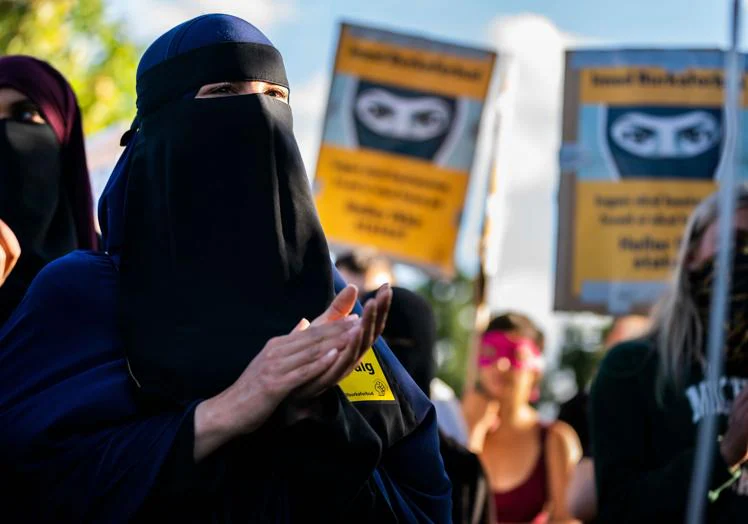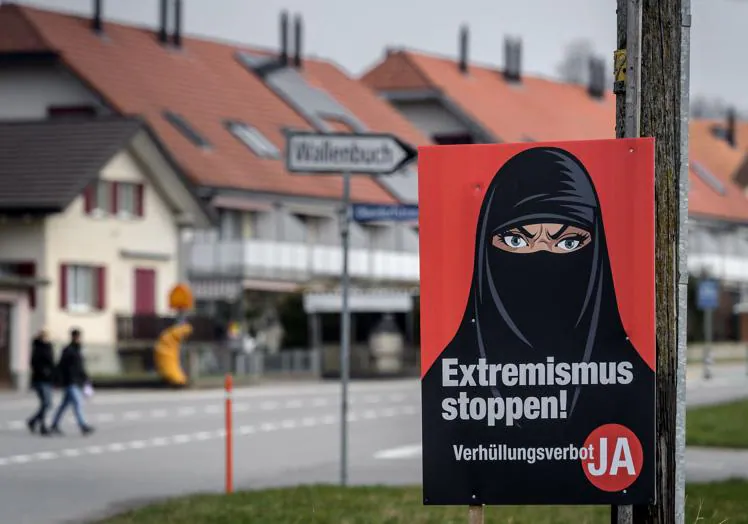It is unquestionable that European society is increasingly diverse. The growing influx of people from all over the world has substantially changed the face of a continent in which more and more cultures and ways of understanding life coexist. The problem is that many of them move in sealed bubbles with little interaction with the rest. In the case of generation zero – the migrants -, there are barriers of different kinds that make integration difficult: from religious and social aspects that clash head-on with values that have been difficult to develop in Europe – secularity, feminism, sexual diversity… .- even the language, passing through an obvious question of social class. Furthermore, the disinterest of the local population and tensions of different kinds make coexistence difficult.
It is not something that only happens in our environment. My experience as an immigrant for two decades in China has shown me that the expatriate community lives a similar reality there. Interaction with the local community is limited almost exclusively to the workplace, because language separates many and there is a gap in leisure and socialization habits. Of course, the big difference with migrant communities in Europe lies in the fact that foreigners in China are, for the most part, economically privileged and, therefore, respected within Chinese society.
Migrant queues in Calais, France.
AFP
The hope is that the situation will change with generation one – those born in Europe to foreign parents. In our country they already form a large group and it seems that there are reasons for optimism, although problems persist among racialized people that this community increasingly verbalizes. Unfortunately, countries with a long tradition of multiculturalism, such as France or the United States, reflect that integration is a very long and complicated process, and that any setback can cause an explosion.
It is happening both in those two countries and in Sweden, and to a lesser extent elsewhere as well. It is a fact that raises logical doubts: Is migrating a right? Can (and wants) Europe to integrate the growing number of migrants? Are you doing it correctly? Do asylum requests hide migration for economic reasons? These are issues that generate a heated debate in which the United Kingdom is bursting in with a new route: sending refugees to Rwanda.
Therefore, today we return to the issue of migration to address it from three different perspectives.
-
A new way: send them to a third country.
-
Lying on the streets of Ireland.
-
The Danes want to eat pork.
-
The British debate
A new way: send them to a third country
According to the United Nations, there are 281 million people in the world living in a country other than where they were born. It is 3.6% of the total population. The United States leads the ranking – with 50.6 million – and Germany – 15.7 million -, although the matter changes if the percentage of migrants in the total population is calculated. In that case, it is the countries of the Persian Gulf that appear at the beginning of the list, with a third of the migrant population in Saudi Arabia and the United Arab Emirates.
23.8 million citizens born outside the bloc reside in the European Union. 5.3% of the total. However, three quarters live in only four of the 27 countries: Germany, Spain, France and Italy. If we take into account the nationalized population that was born outside the EU, the figures change: 38 million, 8.5%. Logically, these statistics do not include the children of these migrants, who are already Europeans born in Union territory.
-klqD--748x524@RC.png)
Arrivals of irregular immigrants to Europe through different routes.
Frontex
The European Commission estimated that, without immigration, the European population would have decreased by half a million people in 2019 alone, and the International Organization for Migration emphasizes that the vast majority of migratory movements are legal and criticizes the press for focusing on its more negative aspects. However, after the gigantic peak that marked 2015 and 2016, it recognizes that irregular migration entries are increasing: 150,000 were registered in 2021, 190,000 in 2022, and 270,000 last year. Are they reaching an already saturated territory?
-klqD--748x524@RC.png)
Arrivals of irregular immigrants to Europe through different routes depending on nationality.
Frontex
The United Kingdom is convinced that it is. It is fifth in the world ranking by absolute numbers, with 9.3 million immigrants in 2020, and last week it managed to approve, after the Supreme Court’s veto last year, the rule by which asylum seekers in the country – Not all migrants – will be sent to Rwanda if they enter its territory illegally through a safe country. For example, France. Not in vain, the arrival of those crossing the English Channel reached a record of almost 50,000 in 2022.
-klqD--748x524@RC.png)
Irregular arrivals to the United Kingdom through the English Channel.
British government
London argues that in many cases, seeking asylum is a ruse to stay in the country, and that most are actually economic migrants. Also, if those seeking refuge are looking for a safe place and not residing in the United Kingdom, their safety will be guaranteed in Rwanda. It is something that London and Kigali agreed to in a treaty for which the African country has already received 240 million pounds. If everything goes smoothly, the final payment will be 370 million in five years, to which 20,000 pounds will have to be added for each person referred. It is, de facto, the subcontracting of refugee reception. Your applications will be processed in the African country and, if accepted, will allow you to reside in Rwanda, but never in the United Kingdom.
Rishi Sunak’s government has detailed that the British asylum system costs almost 4 billion pounds annually, to which we must add another 8 million per day in hotels for them. At the moment, it is estimated that some 52,000 asylum seekers could be sent to Rwanda on planes that will begin to take off in a couple of months. But it is not yet clear what will be cheaper.

The Hope Hostel in Kigali, Rwanda, waiting for the first asylum seekers.
AFP
In 2021, Europe was hosting less than 10% of all refugees in the world, a percentage that skyrocketed to over 20% following the Russian invasion of Ukraine. Even so, only Germany – with 2.8% of its total population – enters the group of the five countries with the largest refugee population, led by Turkey – with 4.5% -, Iran -4% – and Uganda -3.5%-. On the other hand, it is also true that many of the expulsion orders issued in countries like Spain are not fully executed. Last year there were only 2,760, around 5% of all expulsion orders issued by the courts.
-
An overwhelmed system
Lying on the streets of Ireland
Although the case of Ireland has attracted much less attention than that of the United Kingdom, it is no less dramatic. The country has run out of capacity to house asylum seekers awaiting a response and there are more than 1,500 living on the streets of different cities, especially in Dublin. The Minister for Integration, Roderic O’Gorman, has described the situation as a ‘humanitarian crisis’ and warns that cases of xenophobia are multiplying, ending in direct attacks against migrants and reception centres.
The temporary solution is to build modular accommodation on public land, as well as in private spaces acquired or rented by the Government, which wants to avoid hotels at all costs. The goal is that in 2028 there will be 14,000 beds available, four times the number previously contemplated. However, if arrivals continue at the current rate, the system could be permanently overwhelmed.

A police dog discovers a migrant under a truck bound for Ireland.
AFP
Therefore, it has been “very problematic” for Ireland to sign the European immigration pact. In fact, it is the only country, along with Denmark, that can choose the points it will comply with. And it has already announced that it will adopt the regulation that will allow the detention of some asylum seekers in border locations for a maximum of 12 weeks, which has provoked criticism from different activist groups.
Much more aggressive have always been Hungary and Poland, which have radically opposed the pact by which migrants arriving in the EU will be distributed throughout all its member states. Without a doubt, immigration will be one of the pillars in the electoral campaigns of the next European elections in June and one of the assets with the most traction of the right-wing parties.
-
The problem is Islam
Danes want to eat pork
In 2005, peaceful coexistence was blown up in Denmark. The newspaper Jyllands-Posten published a dozen cartoons of Muhammad, and demonstrations spread around the world, in a Muslim rage that left some 250 dead. The situation ended up getting back on track, but life in Denmark has never been the same. And the tension continues. A good example of this was the response to the request in several schools that pork not be served so as not to upset Muslim students: in 2016, the city of Randers required that pork be served on all public menus, which he considers an essential part of Danish culture.

Demonstration against the ban of the niqab in Denmark.
AFP
Two years later, Parliament followed France and banned the face-covering niqab for Muslim women. It was approved with 75 votes in favor and 30 against, a sign that more and more parties, even those on the left, are hardening their stance towards immigrants who profess Islam, and whom many criticize for trying to impose their customs.
The debate, without a doubt, is tricky and threatens to stigmatize the entire group. Not in vain, the country identified 29 ghettos (as it called them) in areas with a high migrant population. “Many times the emphasis is placed on the feelings of Muslims living in Denmark, when it should be placed on the feelings of Danes,” criticizes a parliamentarian from a conservative party in an interview with Australian television. And it is a valid argument. I have worked in different moderate Muslim countries, such as Malaysia, Indonesia or Bangladesh, and in some more radical ones, such as Pakistan or Saudi Arabia. In all of them, it is unthinkable to eat pork. In many you cannot drink alcohol. Never will a woman – regardless of her religion – visit a mosque without covering her head. I have never seen followers of other minority religions complain about this.

Anti-Muslim poster in Switzerland.
AFP
Shouldn’t the same tact be demanded when Muslims travel to secular countries? Are democracy and freedoms a weakness in the face of those who try to impose values contrary to them? Until now, these were questions that were asked from the right side of the political spectrum, but they are increasingly being asked across the entire parliamentary spectrum.
Is all for today. I hope I have explained well some of what is happening out there. If you are signed up, you will receive this newsletter every Wednesday in your email. And, if you like it, it will be very helpful if you share it and recommend it to your friends.
#immigrants #Rwanda #Basque #Journal
